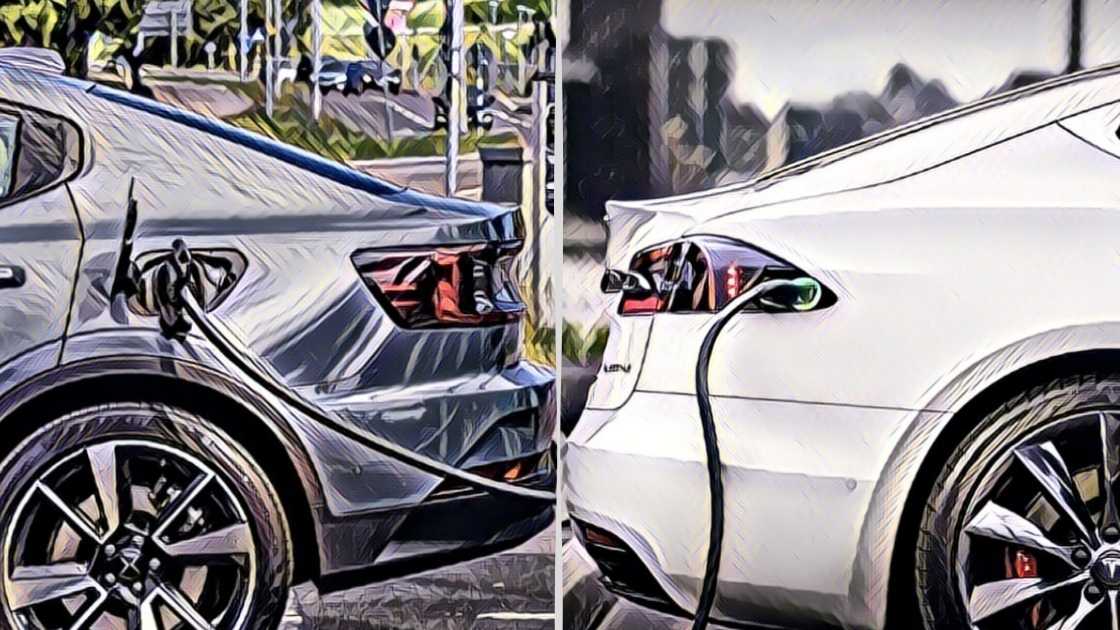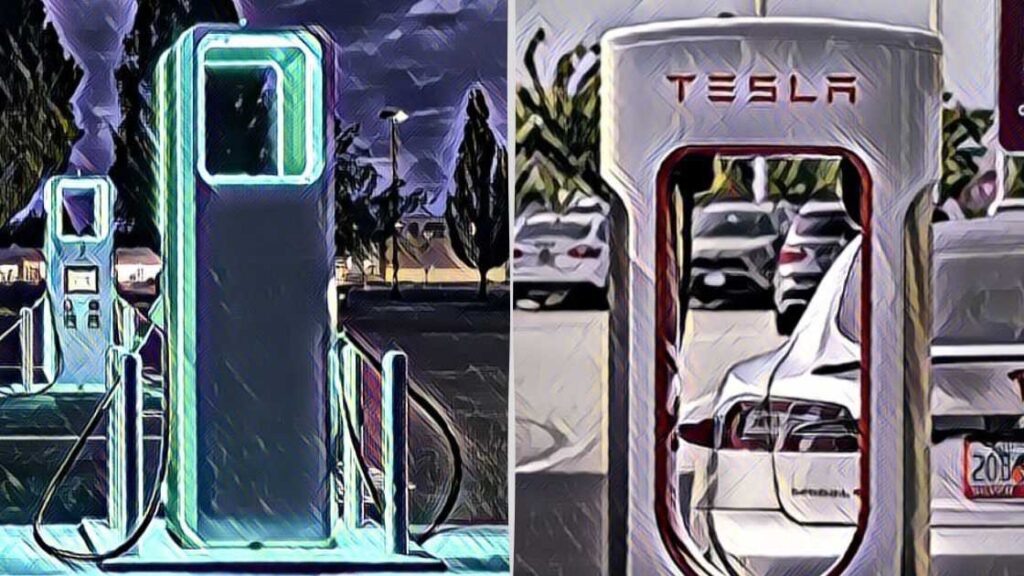What problems with electric cars can you expect for owners? EVs are still in their infancy and despite the rewards with owning one there are risks which you will need to consider.
Problems With Electric Cars
There are many advantages of owning an EV but, there are also many disadvantages. We take a look at the biggest drawbacks and problems with electric cars if you’re considering owning one.
10. Limited Range
Range anxiety is real. It’s the fear of driving an EV and running out of power while being unable to find a charging point. One of the biggest problems with electric cars is their limited driving range.
While technology has improved the range of EVs in recent times, for those who travel long distances regularly it may not be worth the range anxiety with having to plan charging stops very meticulously.
9. Charging Network
A limited driving range requires the need for constant charging. EVs may get similar mileage than ICE (internal combustion engine) cars or even better however, the charging infrastructure is nowhere near that of gas stations.
The charging network is being led by Tesla’s Supercharger network which is the largest fast charging network across the globe. Charging network infrastructure is still in its infancy globally and there is a long way to go to limit range anxiety especially during long-distance travel.
8. Charging Time
I own a Polestar 2 MY23 long range dual motor and I charge it using a single phase 7kW, 32Amp max wallbox charger setup in my garage. Three-phase would improve that greatly but would require some significant upgrades at home.
Following manufacturer recommendations I run down my battery down to about 10% and charge my Polestar to a maximum 90% charge which takes about 8 hours to do. At a fast charging station I could achieve the same charge in around 30 minutes with a 150kW charger. Now, where do I find one of those around here?
7. Upfront Cost
The initial purchase price of an EV is often higher than comparable ICE cars but the gap has been closing in recent years. One of the advantages of owning an EV are the different government incentives that are available across the globe. Electric vehicles are also attributed to lower operating costs over gas-powered vehicles, but whether these costs completely offset the upfront costs of an EV is something that needs to be calculated case by case.
While the gap has been closing in recent years the higher upfront cost can still be a barrier for some buyers despite the potential long-term savings in operating costs.
6. Resale Value Uncertainty
The upfront cost of an EV is high and if you’re buying brand new, one of the problems with EVs is that you could also be hit with future resale value issues.
On top of the standard depreciation expected on used vehicles, long-term ownership impacts of EVs are uncertain with the impacts on resale values. As EV technology continues to evolve rapidly it makes an EV purchase a risky one compared to what we know about ICE cars.
5. Battery Costs
Operating costs can be cheaper for an EV versus an ICE car short term. Long term data is still in its early days and batteries are going to degrade over time. Replacing the battery cells is going to be a significant expense and when done out of warranty the cost for a replacement Tesla battery is around the $15-$20k mark.
4. Battery Weights
Heavy battery packs are causing problems with electric cars that are only going to get worse. The Ford F-150 Ford Lightning has a reported curb weight of up to 6,500 lbs (2,938 kg). That’s 35% heavier than the ICE equivalent.
Think about the impact of heavier vehicles on weight-bearing structures like parking garages which may not be able to take the weight load on the increasing number of EVs.
3. Dependency on Electricity Grid
EVs are only as clean as the methods used to harness the electricity they use. More than half of the world’s electricity generation is from coal and natural gas, both non-renewable resources. If you’re also relying on the electricity grid blackouts could cause issues with trying to charge an EV.
2. Impact of Weather on Range
The weather can cause problems with electric cars and their range because of battery inefficiencies in extreme weather as well as the energy used with climate control systems.
Temperatures of 95°F (35°C) can decrease range by more than 15%, and temperatures below freezing can decrease range by more than 40%.
1. Rapid Model Updates
Part of new car ownership is that your car is going to be replaced with a new model in the not too distant future. One of the biggest ownership problems with electric cars is that the technological advancements are significant, making used cars old technology fast.
When I bought a Polestar 2 MY23 long range dual motor, the updated model Polestar 2 got bigger batteries for more range, a power upgrade and increased charging speed capability. Great!




